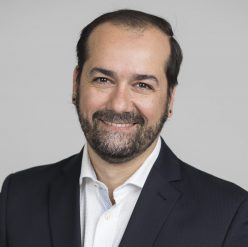By: Gonzalo Coloma, MBA, Entertainment Entrepreneur, Business Advisor

The Québec Government’s pledge to support Cirque du Soleil with $200 million in loans could not have come at a better time. The province’s economy has been hit hard by COVID-19, which destroyed 820,000 jobs in April alone. Many are the potential investors interested in participating in Cirque’s revival. As recently as last morning, according to the New York Post, a financial group would be ready to team up with Guy Laliberté, who wishes to give a second life to the company he founded.
Cirque du Soleil has also been reeling. Without support it will be unable to provide jobs and opportunities for Québec youth, who are among the biggest beneficiaries of the economic spinoffs that it provides.
I know. Because I was one of those young kids who performed with Cirque du Soleil early in my career and the experience influenced me for the rest of my life.
The opportunities that Cirque de Soleil provided led to the formation of a circus company I founded which brought me touring to more than 20 countries.
That’s why I feel it is important to speak out. Because I believe that if Cirque wants to return to its past successes and to keep building opportunities for Québec’s young, creative talent, it will need to adjust its business model.
Balancing creative talent and business acumen
The government’s decision to extend aid in the form of loans instead of grants and to ask for an option to take an equity stake are positive developments, as is its insistence that Cirque du Soleil’s head office remains in Québec.
This will enable Cirque to build on its core strengths: its people, artistic talent and the creative energy that comes from Québec itself, which is one of the few places on earth that could spark the successes it had.
That said, in recent years Cirque du Soleil has stepped away from its roots. Today it is clear that its business model hasn’t been working as well as it should.
I argue that much of this stems from the organization’s gradual shift from an artistic inspired endeavour, to a business-systems driven model. While the move generated short term profits and productivity gains, these proved to be illusory over the long-term.
I believe that it is time for Cirque to rebalance its approach.
The “Three strikes” problem
One of the first visible effects of the Cirque de Soleil’s shift towards a more “professional” model was the gradual attrition of its creative talent pool. Since then, the organization has been struggling with what I call the “Three Strikes” problem.
Following is how it plays out. A client goes see his first Cirque de Soleil show. Perhaps with his family. Like most spectators around the world, they are blown away by the talent and creativity.
Not surprisingly, a large number of Cirque clients are thus repeat customers. But given the “cookie cutter” nature of some productions and the high ticket costs, the experience is less exciting the second time around.
Cirque’s strong brand name and professionalism mean that clients remain nevertheless willing to give them a third chance at bat. By then the shortfall in creative rejuvenation becomes more obvious. After three strikes, you are out.
Cirque du Soleil decision to stop auto-producing their touring shows, which transferred the risk to local producers was likely in part implemented to help address this challenge. However the move hit profits hard.
For example Cirque de Soleil reported revenues in 2008 of $733 million and an operating profit (before interest and taxes) of around 25%. By 2014 the revenues rose to $845 million but the operating profit margin dropped to only 15%. The company’s valuation fell by almost half.
Time to rebalance
I believe that if Cirque du Soleil is to regain its past successes, it must look deep into its roots. That process starts with rebalancing its approach to give more input in the creative process to the creative team, artists and talent, as well boosting compensation packages to attract new people and to keep them on board.
Meshing Québec creativity with a new team of professional managers that understands the circus industry, remains focused on building long-term value and is ready to innovate should provide the perfect mix. Leveraging Cirque du Soleil’s lucrative brand into new markets such as food service and hospitality might also work.
If that happens, most of its customer base will be thrilled to give Cirque another chance at bat.
